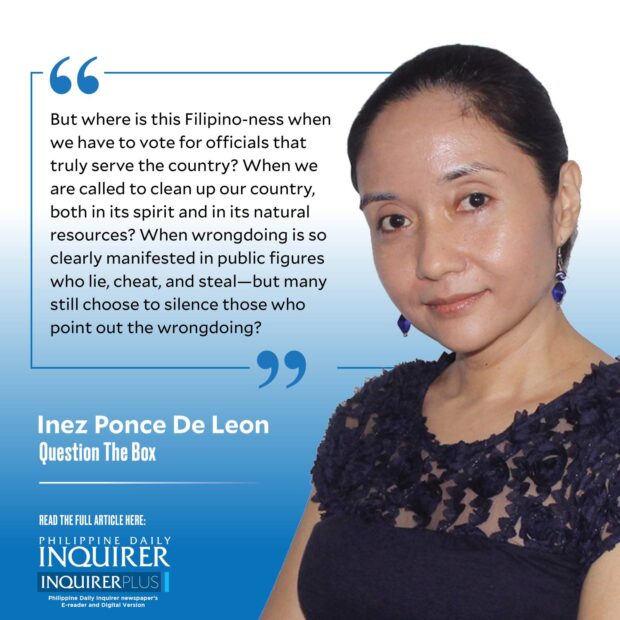Split-level everything
This week, I will present a paper, though remotely and asynchronously, to the 14th International Conference on Sport and Society in Las Vegas. I’ve been building my own research corpus into the intersections of sports and nationalism, particularly in how we talk about our athletes online, and how these reflect a unique brand of patriotism. This, in turn, could have implications on who we are, as a people, with our multiple cultures.
This year, I chose to focus on the online comments on Alex Eala’s historic US Open win. I wrote about this in a previous column (“Game, set, match, language,” 9/14/22): In her post-match interview, she gave a speech in Tagalog, addressing her fellow Filipinos in the crowd.
I analyzed the online comments on news articles that covered the event. A great majority of the comments were, as expected, congratulatory. But some comments were far more detailed, and rather interesting: Some admired her courage for speaking her own language, while others talked about how nice it was to have a young Filipino representing the country at such a high level.
Then there were some comments that were darker, if not obnoxious. People began lambasting those who spoke English, especially those who went to protest rallies and spoke out against the government. Here was true nationalism, they said, in a young girl speaking Filipino. There was no real goodness in the people who protested in the streets, spoke another language, and complained.
It was as though a mere performance was enough to label one kind of Filipino as truly patriotic, and the other side as barbaric.
A closer look at other events indeed calls to mind this idea of performative patriotism: sports, beauty pageants, and internationally released films are just a few. Performative patriotism, in our case, seems to be a pride raised only when someone visibly provides some semblance of Filipino-ness: a sentence in a local language, a national costume, an allusion to something near and familiar.
But where is this Filipino-ness when we have to vote for officials that truly serve the country? When we are called to clean up our country, both in its spirit and in its natural resources? When wrongdoing is so clearly manifested in public figures who lie, cheat, and steal—but many still choose to silence those who point out the wrongdoing?
It seems that our sense of being Filipino is so far divorced from our patriotism, and this patriotism is so isolated from actual citizenship.
Our Filipino-ness, then, exists on some split-level away from our existence.
This idea of split-level identities is not new. The late, great Jesuit psychologist Fr. Jaime Bulatao once wrote an essay on split-level Christianity.
In Bulatao’s essay, Filipinos have two kinds of rationales that exist within them, but are contradictory: Catholicism is one layer; but at a deeper level, Filipinos are governed by the rules, attitudes, and beliefs in their environment. What they learn in school exists alongside what they pick up at home or on the street. In other words: an hour of church on Sunday to show evidence that one is Catholic, but condoning wrongdoing for the rest of the week.
If we look even deeper, then that means we are a split-level everything people: We do not internalize our faith, so we show outward signs of it in dramatic fervor; and then we vote for people who show no evidence of the goodness that we must all strive for. We do not internalize our lessons in school, so our history is warped and twisted, and everything that we know and have been taught to be true is lost in the wake of gossip.
We do not internalize what it means to be a citizen in a country and reduce nationalism to some performance. We worship leaders, rely on token representatives before choosing to be good citizens—when we should be good citizens ourselves, without having to be told what to do.
This split-level existence seems to be contingent on someone else watching what we are doing. No wonder TikTok has become so popular: It facilitates a deep-seated culture of wanting to show off a reality divorced from one’s true self so that even we are falling for our own illusions.
There is none so difficult to awaken as one pretending to be asleep, the adage says; in this case, there is none so difficult to remove from inaction as one laboring under one’s own crafted reality.





















